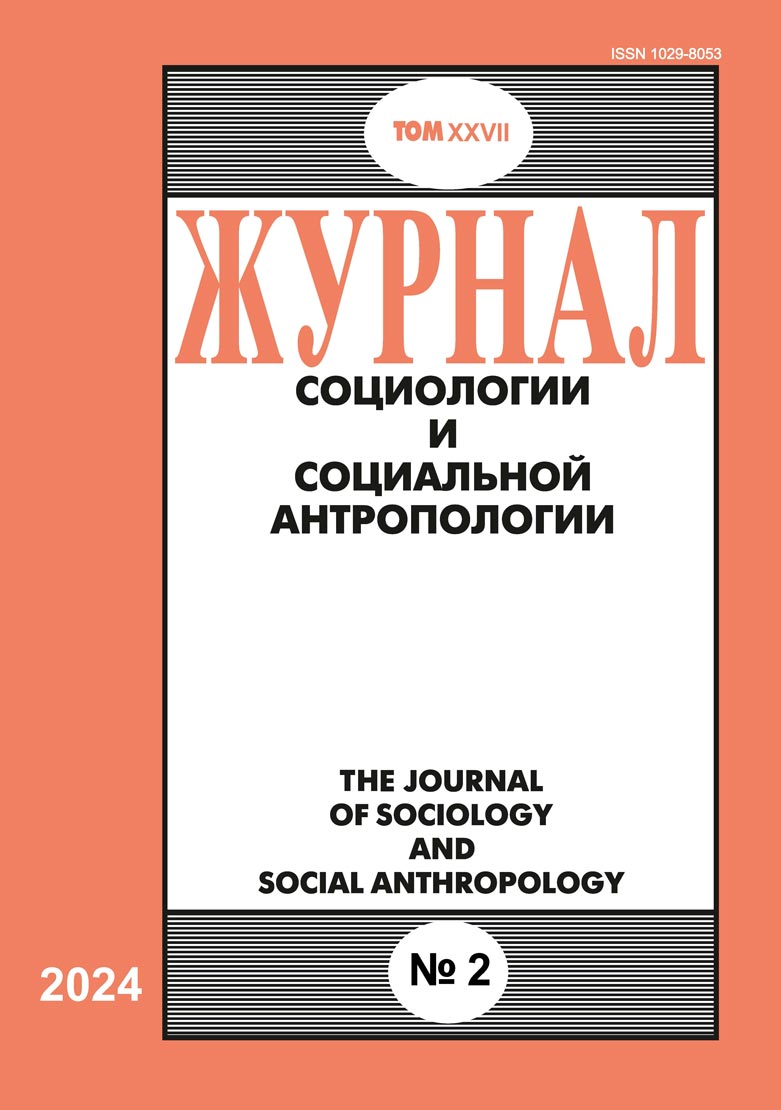Рабочее время и творчество: опыт практического исследования
Научная статья
Аннотация
Литература
Берарди Ф. (2019) Душа за работой: от отчуждения к автономии. М.: Грюндриссе.
Вайсман Д. (2019) Времени в обрез: ускорение жизни при цифровом капитализме. М.: Издательский дом «Дело» РАНХиГС.
Ваньке А.В., Полухина Е.В., Стрельникова А.В. (2020) Как собрать данные в полевом качественном исследовании. М.: Издательский дом Высшей школы экономики.
Гастев А.К (1972) Как надо работать. Практическое введение в науку организации труда. М.: Экономика.
Гидденс Э. (2005) Устроение общества. Очерк о теории структурации. М.: Академический Проект.
Горц А. (2010) Нематериальное. Знание, стоимость и капитал. М.: Издательский дом Государственного университета — Высшей школы экономики.
Гребер Д. (2020) Бредовая работа. Трактат о распространении бессмысленного труда. М.: Ад Маргинем Пресс.
Григорьева К.М. (2019) Генетические основы хронотипа человека. Forcipe, 2: 242.
Димаджио П., Пауэлл Дж.У.В. (2010) Новый взгляд на «железную клетку»: институциональный изоморфизм и коллективная рациональность в организационных полях. Экономическая социология, 1: 34–56.
Друкер П. (2004) Энциклопедия менеджмента. М.: Вильямс.
Дюркгейм Э. (2018) Элементарные формы религиозной жизни: тотемическая система в Австралии. М.: Элементарные формы.
Лыткин Д.Н. (2022) Структура времени в организации. Телескоп: журнал социологических и маркетинговых исследований, 2: 124–131.
Маркс К., Ф. Энгельс (1959) Сочинения. 2-е изд. Т. 13. М.: Гос. изд-во полит. лит-ры.
Мастеров Б.М., Некроенко Л.М. (2014) Time mentality management: парадигма «Управление хронотопом». Организационная психология, 3: 54–68.
Паркинсон С.Н. (2007) Законы Паркинсона. М.: АСТ.
Патрушев В.Д. (2001) Жизнь горожанина (1965–1998). М.: Academia.
Пруденский Г.А. (1972) Проблемы рабочего и внерабочего времени. М.: Наука.
Сорокин П., Мертон Р.К. (2004) Социальное время: опыт методологического и функционального анализа. Социологические исследования, 6: 112–119.
Струмилин С.Г. (1982) Проблемы экономики труда. М.: Наука.
Тросби Д. (2018) Экономика и культура. М.: Издательский дом Высшей школы экономики.
Флорида Р. (2016) Креативный класс. Люди, которые создают будущее. М.: Манн, Иванов и Фербер.
Фуко М. (2018) Надзирать и наказывать. Рождение тюрьмы. М.: Ад Маргинем.
Шейн Э. (2002) Организационная культура и лидерство. СПб.: Питер.
Штомпка П. (2005) Социология. Анализ современного общества. М.: Логос.
Яковлев В.П. (1980) Социальное время. Ростов: Изд-во Ростовского университета.
Edwards P.N. (2002) Infrastructure and Modernity: Force, Time, and Social Organization in the History of Sociotechnical Systems. In: Modernity and technology. Cambridge: MIT Press: 185–226.
Gurvitch G. (1964) The Spectrum of Social Time. Dordrecht: D. Reidel publishing company.
Hartmut R. (2013) Social Acceleration: A New Theory of Modernity. N.Y.: Columbia University Press.
Hassard J. (1990) The Sociology of Time. N.Y.: St. Martin's Press.
Поступила: 20.12.2021
Опубликована: 10.06.2024






